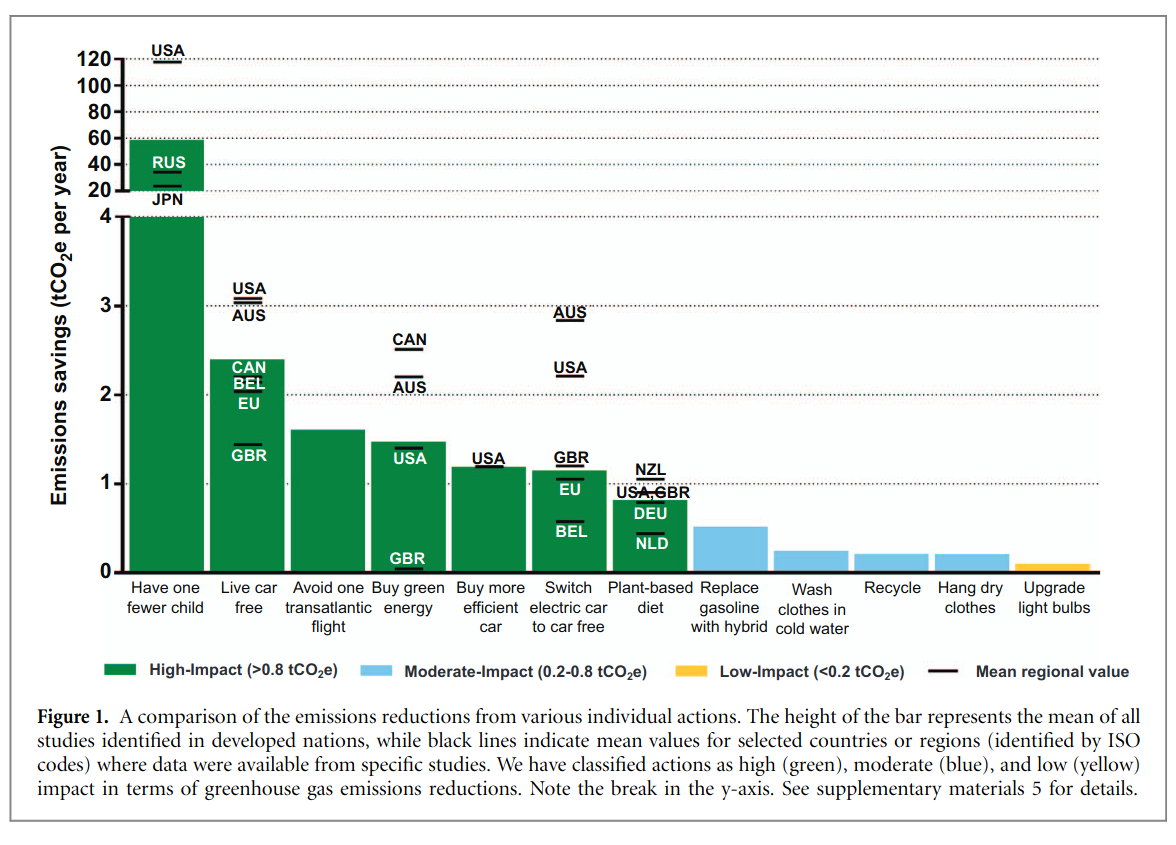- cross-posted to:
- upliftingnews@lemmy.world
- climate@slrpnk.net
- cross-posted to:
- upliftingnews@lemmy.world
- climate@slrpnk.net
I hope a lot of people have made at least some changes in their lifestyle by now.
deleted by creator
I understand that companies are doing the greatest damage to the environment, but its always:
“People should try to live…”
“Yeah, bUt cEoS AnD cOmpAnIeS”
It feels like people are just pointing fingers at each other and no one is doing shit.
deleted by creator
But something like 2/3 of that 8 billion is not even partaking in the global economy and have basically zero impact to the climate.
Yeah people should do what they are in control of whilst advocating for the big companies to do stuff. Don’t just sit around and wait.
Exactly
Guerilla gardening fruit trees.
Surprisingly, also: gorillas gardening.

Don’t forget gardening gorillas!

“The primates are really coming along well this year, darling. Too bad about the petunias, though”
deleted by creator
Fine I’ll bite, what does eating more meat do for the environment?
Go vegan
Having less children, car free and plane free have more impact.

Killing other people’s children is even more environmentally friendly!
Drop the gofundme!
Killing yourself as well!
This whole “have one fewer child” thing is totally bonkers, because even on the face of it, it really only makes sense for people in Western nations with their current lifestyles. It’s also an average over all the people in that country, meaning it’s heavily spoiled by rich kids. Essentially, 1. you can’t know beforehand how your child will live and 2. emissions don’t scale linearly with the number of people (again, look at the difference between countries). And then there’s the anti-humane undertone of it.
And we have to choose only one?
edit: Also, I have avoid one fewer child for more than 2 decade !
And avoided transatlantic plane travel too!
No, but some seem more impactful and easier to get socially accepted, so we should probably focus on those.
I don’t think that we should focus on something specific, for sure you will not convince everyone to go vegan, but it’s the same to go car free
Some people might find it easier to to vegan and stop plain that not owning a car, and other opposite, I think that at this point everything is good to take
Focus on doing what you can, not on thinking what to focus on.
Or just you know, all of the above :)
One can easily be vegan while doing all of those, I am :)
Removed by mod
You don’t have to replace your calories from animal products with produce, foods like beans exist. Also some produce like onions and potatoes have long shelf life.
Another victim of not having stores close to housing I take it, I feel for you.
There’s lots of plant based stuff with a long shelf life like TVP, beans, rice, grains, pasta, lentils and so on.
Frozen veggies are great and still nutritious and you can freeze loads of stuff like tofu, seitan and all the various meat alternatives.
Going car free isn’t an option for most Americans, unfortunately.
deleted by creator
I agree.
I’ve been in favor of requiring licenses for anything past a light truck (figure older ford rangers as a light truck), so that only people with demonstrable needs for said vehicles would pursue them, otherwise they would need to go through the trouble for nothing. Same would go for large SUVs, as they’re often built on the same platforms anyway.
I just drive a Corolla and own an older Crown Victoria as a backup car for my family/“nice car”. There’s been times where owning a truck would certainly have been useful, but I just rented something from uhaul.
And even for people who use their cars twice a day to go to work, their car spends 95% of their lives parked, individual cars are such a waste. I hope self-driving actually happens one day so the % of use of cars can drastically increase, and their number drastically decrease.
It works if you have a good infrastructure for public transportation. I live quite far away from the nearest public transportation and if I wanted to use apps like Uber, my local equivalent has eliminated penalties for drivers accepting and then rejecting an order if it doesn’t pay enough so I’ve given up trying to use apps like Uber.
So the only option is to get a car or just be stuck unable to do anything.
It’s funny, I was just at the car dealership yesterday getting my car repaired and I talked to a guy on the showroom floor who was buying a new vehicle. The dealer had the new Nissan electric car on display that I was checking out, and the guy said " Don’t buy that it’s electric! "
I asked him why, because I think electric cars are great. He was a bigger man, about 5’10 tall and 350 lb. He said that he can’t fit in anything smaller than a full size pickup truck because they are “too small for me.”. Which of course is silly, because I’ve seen plenty of fat people fit in smaller cars. In fact, I had a friend who weighed almost as much as he did who was able to fit into my 1986 Honda Civic hatchback.
So there you go ladies and gentlemen, Americans believe they’re too fat to fit in anything but a gigantic pickup truck with a 7,000 lb GVWR.
The average trip length in America is something like 2 mi in distance. That’s a distance that you could walk, and you can bike that in less than 5 minutes. So Americans really can meet a lot of their daily travel needs to the store and short errands by means other than a car.
The biggest problem in America is twofold: infrastructure and behavioral patterns.
Your point is valid, but the fact is none of those are enough on their own. Even if we get rid of all emissions except for the cattle industry, wed still shoot way past the 1.5° mark. So not going at least vegetarian was never an option.
Catal is the worst as far as animal emissions. Sticking with chicken or fish if you want your animal protein is the way to go.
Or Tofu 👍👍
Or nuts and other beans.
If it has to be animals, yes.
The environmentally beneficial effects of plant based diets or a vegan lifestyle are not reduced to harmful GHG emissions alone but encompass a wide range of advantages. To name some:
- Reduced agricultural land use (the vast majority of land is used to grow cattle feed). This can also reduce deforestation (especially interesting in the Amazon region), increase ground water and soil quality. Avoids soil erosion. It also perserves eco systems on land and helps to mitigate species extinction.
- Water usage. It takes about 1000x to produce meat than to produce an equivalent amount of, e.g., wheat.
- Reduction of overfishing and thereby protecting and stabilizing oceanic eco system.
- Reduction of the huge amount of water and air pollution caused by the animal industry.
Same thing can be said for all the carbon reduction measures, producing less leads to consuming less of everything, especially technology products.
In general sure, producing less and consuming less leads to less impacts. But there are quite the differences in what and how we consume it with regard to their impacts. For example, we don’t need agricultural space for mining cobalt to build batteries which power electric cars.
Let me guess, to reduce murder rates we should also have less children! After all, they might turn out to be murderers.
Any person remotely willing to not have children in order to protect the climate was not a big problem for the climate anyway.
Any person who doesn’t care slightest about the climate, and would never look at the debate we’re having, is a much bigger problem.
Removed by mod
I’ve only gone vegan after two things happened:
- FFF strikes made environmentalism “a thing”
- Easy vegan alternatives have been easily accessible and cater to my carnivorous eating habits
There are likely other factors as well. Point is: it’s never just one thing, and therefore every little thing helps.
deleted by creator
Is it more expensive? (Consideringthe same nutrients intake fat, protein, etc)
Not with those replacements, yes if you make original vegan recipes with beans and stuff like that
Removed by mod
Greta! ✊
This is the best summary I could come up with:
Almost a third of Swiss people changed their daily habits as a result of Greta Thunberg’s Fridays for Future climate strikes, new research has found.
Now, a study by the Swiss Federal Institute of Technology Lausanne (EPFL) has examined the wider impact of these strikes on people’s environmental choices.
To examine the wider impact of the school climate strikes, EPFL researchers surveyed Swiss residents in the wake of the protests in October and November 2019.
“Our findings showed that people have become more aware of how their behaviour affects the environment and that significant shifts are under way at an individual level,” says Livia Fritz, a researcher and the study’s lead author.
Changes in transport habits included looking for alternatives to driving to work, such as walking or cycling, and avoiding flying by choosing holiday destinations closer to home.
Survey participants also reported seeking out local, organic produce, eating more vegetarian meals, and making a bigger effort to reduce plastic waste following the climate protests.
The original article contains 421 words, the summary contains 165 words. Saved 61%. I’m a bot and I’m open source!
Changes in transport habits included looking for alternatives to driving to work, such as walking or cycling, and avoiding flying by choosing holiday destinations closer to home.
Survey participants also reported seeking out local, organic produce, eating more vegetarian meals, and making a bigger effort to reduce plastic waste following the climate protests.
Positively surprised to see effective measures, like avoid flying and meat.
IIRC Switzerland also has quite an exemplary carbon pricing scheme. I’m totally unaware how much flights and meat are encompassed. The general point I’m trying to make: It’s probably hard to say wether people changed their habits due to FFF, or due to policy changes. Of course, FFF likely influenced policy changes.
Either way, thanks for the uplifting news :)
Now I’m waiting for the more serious news how Swiss companies have changed their business practices ;)
There are no policies really affecting the choice to fly or eat meat.
The exemption from fuel taxes is a policy affecting air travel. Also, policies affecting competing modes of transportation.
Similarly, meat isn’t priced according to it’s true cost, which can be seen as a subsidy.
From my point of view, everything (including the two) should be included in carbon pricing, to prevent a distorted market.
Yeah I agree, what I meant is that as a Swiss citizen there are really no policies driving you towards producing less carbon. Or if there are you do not really notice them in your day to day life. So I am pretty sure the people did this on their own accord.
Switzerland also has quite an exemplary carbon pricing scheme
No we don’t
Care to elaborate? I like the dividend part about the tax and dividend scheme.
If it were exemplary, our greenhouse gas emissions would go down like Prigozhin’s aeroplane. They don’t. Just like every other country we’re pretending to do something about the climate crisis but it’s too little, too late.
If you mean we’re better at it than say the US or other major powers then yes, but that’s not because we’re doing well, it’s because we’re doing less catastrophically terrible than them.
Ah yes, I’m totally with you. Maybe I was too enthusiastic in my wording.
I meant I like the tax & dividend implementation, with the attempt to make the tax progressive, so it does not burden the poor, but the rich.
Like all other carbon pricing schemes, the amount is way too low to have an effect quick and strong enough, that’s true.
Look, any progress being made about environmental awareness is great, HOWEVER; this bullshit concept of offloading the responsibility of climate change strictly to the consumer is never going to fix the problem.
The people responsible for the largest amount of climate change are the insatiably wealthy that give absolutely no fucks about how much their mega corp ruins the planet.
I don’t know how the rest of the world feels, but here in the U.S., it’s basically impossible to buy anything that doesn’t come packaged in single use plastics, and half our population has been brainwashed to believe climate change is not even a concerning issue.
The companies that profit from blowing everything up should be responsible for cleaning everything up. I do my best to reduce, reuse and recycle, but my city doesn’t even recycle plastic bags because it clogs the machines, and everything comes in damn plastic bags. Putting solar on your house now comes with a high possibility of having your insurance policy canceled, etc, it’s literally one barrier after another, and my carbon footprint is pretty damn low.
Sorry for my rant, it is just very frustrating.
True, and single-use plastic wrappers are indeed a scourge.
But one thing is often omitted when ranting about “companies that profit from blowing everything up”: They often produce stuff that we a) don’t need and b) buy. Nobody needs new phones / computers every year, but they get produced. Almost nobody needs pickup trucks and SUVs, but the suburbs are full of the things. Nobody needs “fast fashion”, but here we go.
It’s true that international manufacturing companies cause a majority of CO2 pollution, but they produce stuff for everyone. If people bought less useless stuff, we’d be better off.
deleted by creator
I do my best to conserve, I have a 10 year old car I keep up and try not to purchase frivolous items, but everything is from hygiene products to food comes in single use plastics…
Things start to make a lot more sense when you realize plastic is a patroleum biproduct. Just think about the insane amount of power the oil and gas industry have. They get billions of dollars a year in subsidies, as basically blackmail to not raise gas prices, plus you know the blatant bribery.
No doubt that is a large part of it!
Yea, i’m sure Greta would be angry with this headline’s framing
This is great. Now we only have to get the governments to regulate global companies that spent millions on propaganda that climate change isn’t real.
Today they told in the radio news that FFF had an impact on “only” 25 % of Germans. IMHO that’s a lot.
That’s a Gretachievement!
I saw what you did here, that’s greta
The study is Open Access. If someone else wants to read it, just click the doi link:
Fritz, L., Hansmann, R., Dalimier, B. et al. Perceived impacts of the Fridays for Future climate movement on environmental concern and behaviour in Switzerland. Sustain Sci 18, 2219–2244 (2023). https://doi.org/10.1007/s11625-023-01348-7
deleted by creator
Proof that Europe is not too bright.
How so?








